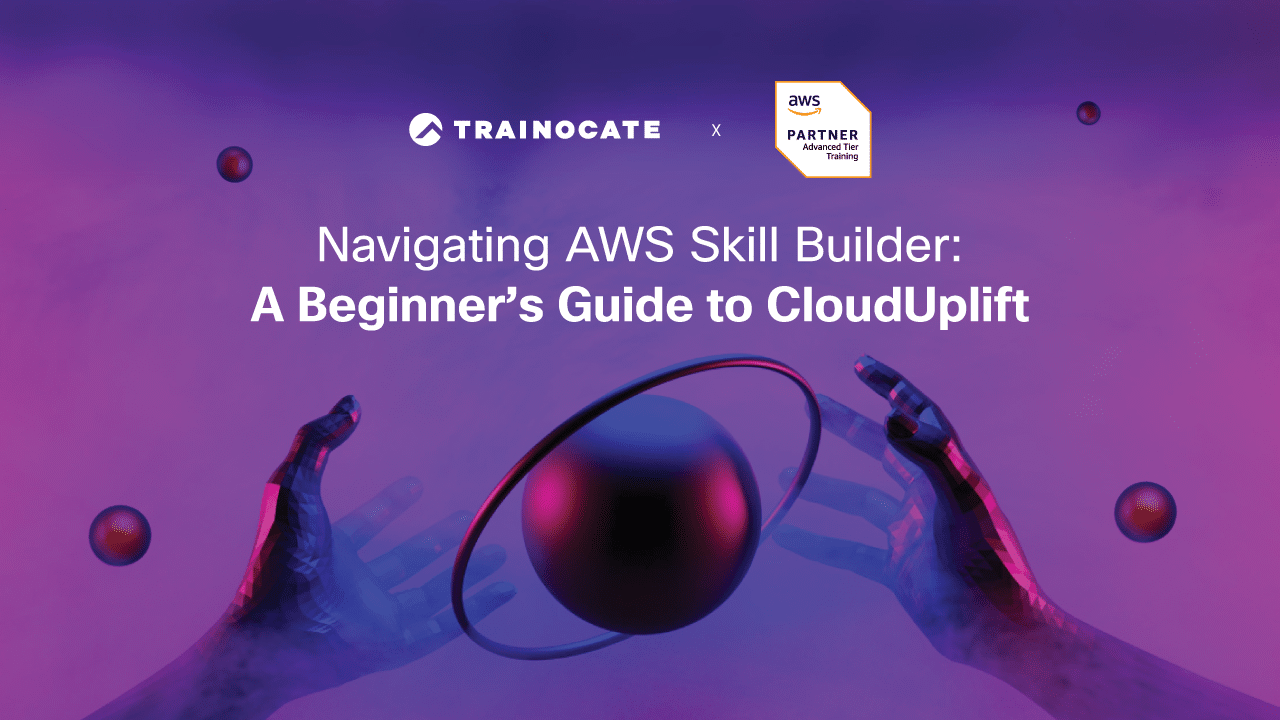Kubernetes Expertise: Unlocking Cloud Potential in Malaysia
Kubernetes Expertise: Unlocking Cloud Potential in Malaysia

Kubernetes in Malaysia
In 2022, Kubernetes has already been adopted by 60 percent of organizations.
As Kubernetes reshapes cloud computing in Malaysia, staying informed is key. This article provides a practical overview of Kubernetes deployment, the state of the job market, and training options. Whether you’re adapting your business or advancing your IT career, discover how Kubernetes is driving innovation and what you can do to stay competitive in Malaysia’s vibrant tech scene.
Key Takeaways
- The demand for Kubernetes expertise is escalating in Malaysia, as various sectors adopt the platform for their cloud computing needs, and professionals are optimizing their career prospects through specialized training and certifications.
- Organizations in Malaysia, such as AVM Cloud and Fave, have successfully adopted Kubernetes, achieving benefits such as enhanced scaling, streamlined deployments, and cost reductions, exemplifying the platform’s impact on business operations and disaster recovery solutions.
- Kubernetes implementation in Malaysia faces challenges like organizational resistance to change, infrastructure demands, and compliance with data sovereignty laws, but these can be managed with proper training, investment in resources, and adherence to best practices and security measures.
The Importance of Kubernetes in Malaysia’s IT Landscape
With a reputation as the most widely used container orchestration platform, Kubernetes is undoubtedly a game-changer in the tech industry. But what makes it particularly relevant in Malaysia’s IT landscape? The answer lies in the growing need for remote access capabilities and specialized cloud computing skills. As more businesses transition to the cloud, the demand for Kubernetes expertise in Malaysia has seen a significant surge.
Various sectors in Malaysia harness the power of Kubernetes. From finance and retail to logistics and government, numerous industries are embracing this platform for their operational needs. Service providers like AVM Cloud have facilitated this shift, making Kubernetes more accessible to businesses across the country.
Kubernetes’ role in cloud architecture significantly contributes to its rising popularity. With Kubernetes training, IT professionals can master the management of a Kubernetes cluster, essential for optimal cloud performance. Tech professionals also acquire skills to execute critical functions through Kubernetes certification training, such as load balancing and command line running kubernetes, vital for maintaining high availability in a cloud environment.
Becoming a certified Kubernetes administrator or a certified Kubernetes application developer not only validates one’s skills but also opens up new career opportunities. The growing recognition of Kubernetes benefits among businesses escalates the demand for Kubernetes administrators and similar roles. Therefore, investing in a Kubernetes course is a strategic move for any aspiring IT professional in Malaysia.

Kubernetes Success Stories in Malaysia
Understanding Kubernetes’ practical applications can offer additional insights into its importance. AVM Cloud, a Kuala Lumpur-based cloud service provider, is an excellent example. They prioritized Kubernetes-as-a-service, fostering enterprise-level cloud adoption in Malaysia. This strategic decision led to high-profile customer engagements, including a prominent ASEAN universal bank.
AVM Cloud didn’t stop there. Leveraging the power of Kubernetes, they launched AVM Cloud Fusion, a novel hybrid-cloud disaster recovery solution. This innovative initiative modernized backup strategies, showing the transformative potential of Kubernetes.
Another noteworthy success story is Fave, a key fintech player in Kuala Lumpur. By integrating Kubernetes into their operations, they achieved the following benefits:
- Refined their microservices framework
- Enhanced scaling
- Streamlined deployments
- Significant reduction in cloud infrastructure costs
- Improved service monitoring
- Enhanced issue resolution abilities
Kubernetes also bolstered Fave’s infrastructure, allowing it to handle surges in traffic and transactions – a critical requirement during peak sales events. Moreover, it optimized their CI/CD pipelines, enabling a more rapid deployment of new features and updates to the market. These success stories serve as educational case studies for the regional corporate audience, emphasizing the real-world benefits of Kubernetes deployment.
Acquiring Kubernetes Skills in Malaysia: Resources and Strategies
A variety of training resources await those keen on mastering Kubernetes in Malaysia. Depending on individual needs and schedules, one can opt for onsite training for businesses, classroom settings, or online self-paced and instructor-led options. The best option is to find a verified training provider like Trainocate Malaysia that partners with industry giants like Google Cloud, Red Hat, VMware, AWS, etc. to provide Kubernetes training courses to the public.
Specialized Kubernetes training courses provide valuable hands-on experience across popular cloud platforms like AWS and Azure. These courses focus on Docker and OpenShift for administrators and practical labs, equipping learners with the necessary skills for the real world.
These Kubernetes courses, from introductory to advanced levels, accommodate a broad spectrum of IT professionals. They cover core concepts, architecture, and security, making them accessible without any formal prerequisites. Whether you’re a cloud engineer, a system administrator, or just an enthusiast, these resources support local professional development within the tech community.
Implementing Kubernetes in Your Organization
If your organization is considering adopting Kubernetes, the first step is selecting the right platform or distribution. This decision should take into account factors such as:
- Organizational maturity for cloud-native deployment
- The required skills and expertise
- Local development support
- Ease of deployment
- User experience
- CI/CD support
- Flexibility to avoid vendor lock-in
- Ability to manage on-premise or edge workloads
Adopting best operational practices becomes vital once the platform is chosen. This includes:
- Using namespaces for cluster organization
- Adopting Git-based workflows
- Leveraging Kubernetes tools like the Dashboard for cluster management
- Using labels for resource organization
Implementation also significantly involves ensuring security. Here are some ways to enhance your Kubernetes security:
- Role-Based Access Control (RBAC)
- Set resource requests and limits to prevent system overconsumption
- Incorporate firewalls for protection from external threats.

Challenges and Solutions: Kubernetes Deployment in Malaysia
The deployment of Kubernetes in Malaysia introduces specific challenges. One common obstacle is resistance to change within organizations. To accelerate Kubernetes adoption, fostering an agile mindset and showcasing the system’s advantages over traditional architectures can be beneficial.
Infrastructure can also pose a challenge for Kubernetes deployment and container management. Organizations need to invest in improving their network and storage resources to meet the demands of containerized applications. Furthermore, Kubernetes deployments must align with national data sovereignty laws to address regulatory compliance challenges.
Malaysian IT teams also need to manage complexity in database management. This involves implementing best practices such as proper configuration and security policy adherence to avoid vulnerabilities. Staying current with Kubernetes updates is also crucial for effectively managing the platform.
Expert Insights: Quotes from Malaysian Kubernetes Professionals
Let’s hear from an anonymous Kubernetes expert, here’s 3 quotes to share with you.
“Hands-on practice was crucial for my understanding of Kubernetes intricacies. Overcoming challenges in a production environment taught me resilience and improved my problem-solving skills.”
“Regular engagement with the community and contributing to open-source projects are essential for mastering Kubernetes. This allows professionals to understand different perspectives and use cases, broadening their knowledge base.”
“Continuous learning is paramount in the ever-evolving Kubernetes ecosystem. By staying updated with official documentation, tutorials, and reputable courses, IT professionals can stay ahead in their Kubernetes journey.”

Kubernetes Certifications: Boosting Your Career Prospects
In the fast-paced world of tech, staying ahead means constantly upskilling. For those specializing in managing containerized applications, Kubernetes certifications play a pivotal role.
At Trainocate Malaysia, we have a list of Kubernetes certifications that are available for you, however, in this blog post, we are only going to highlight 4 of them, pick one that best aligns with your interest.
1. Google Cloud’s Kubernetes Training
→GCPGKE: Architecting with Google Kubernetes Engine
In this 3-day training, you will learn how to deploy and manage containerized applications on Google Kubernetes Engine (GKE) and the other tools on Google Cloud.
This course features a combination of lectures, demos, and hands-on labs to help you explore and deploy solution elements—including infrastructure components like pods, containers, deployments, and services—along with networks and application services. You’ll also learn how to deploy practical solutions, including security and access management, resource management, and resource monitoring.
2. Red Hat’s Kubernetes Training
→DO180: Red Hat OpenShift I: Containers & Kubernetes
This 4-day training is an introduction to building and managing containers for deployment on a Kubernetes and OpenShift 4 cluster. It prepares OpenShift Cluster Administrators to perform day-to-day management of Kubernetes workloads and collaborate with Developers, DevOpsEngineers, System Administrators, and SREs to ensure the availability of application workloads.
This course also focuses on managing typical end-user applications that are often accessible from a web or mobile UI and represent the majority of cloud native and containerized workloads. Management of applications also includes deployment and updating of their dependencies such as databases, messaging, and authentication systems.
The skills you learn in this course can be applied using all versions of OpenShift.
3. VMware’s Kubernetes Training
→EDU-KFCO: VMware Kubernetes Fundamentals and Cluster Operations
Learn how enterprises are using Kubernetes to build, deploy and run modern applications at scale.
This four-day course is the first step in learning about Containers and Kubernetes Fundamentals and Cluster Operations. Through a series of lectures and lab exercises, the fundamental concepts of containers and Kubernetes are presented and put to practice by containerizing and deploying a two-tier application into Kubernetes.
4. AWS’s Kubernetes Training
→AWS-RCAEKS: Running Containers on Amazon Elastic Kubernetes Service (Amazon EKS)
This 3-day training allows you to learn container management and orchestration for Kubernetes using Amazon EKS.
You will learn container management and orchestration for Kubernetes using Amazon EKS. From setting up clusters to deploying applications and automating deployment, this course covers it all. Learn to monitor, scale, design efficient environments, configure networking services, and ensure security for your Amazon EKS environment.
5. Cloud Native Computing Foundation (CNCF) Kubernetes Training
→CKA: Certified Kubernetes Administrator
In this 3-day course, learn the essential skills for Kubernetes administration, covering storage, troubleshooting, workload management, cluster architecture, and networking.
Developed by The Linux Foundation and endorsed by CNCF, it’s ideal for aspiring Kubernetes administrators and IT professionals aiming to enhance their expertise.
→CKAD: Certified Kubernetes Application Developer
This 3-day course equips participants with the essential skills to excel in Kubernetes application development.
Designed according to the official CKAD Exam Curriculum, it offers hands-on training, lab exercises, and simulation exams to prepare individuals for success in the rapidly growing field of cloud-native development. Ideal for Kubernetes engineers, cloud engineers, and IT professionals aiming to boost their expertise and marketability.

Continuing Education: Staying Ahead in the Kubernetes Ecosystem
In the Kubernetes ecosystem, continuous learning is not optional – it’s essential. The technology is constantly evolving, introducing new tools and best practices at a rapid pace. Updating to the latest Kubernetes version is crucial for:
- Securing patches
- Improving performance
- Introducing new features
- Ensuring continued support as earlier versions may become obsolete.
Moreover, IT professionals need to:
- Monitor the deprecation and removal processes in Kubernetes
- Stay current and adapt their skills accordingly
- Use release notes and changelogs as key resources to stay updated
- Take a proactive approach and stay abreast of Kubernetes developments
By following these steps and staying updated with the technologies, IT professionals in Malaysia can ensure they remain competitive in the field of software development.
Summary
In conclusion, mastering Kubernetes opens up a world of opportunities for IT professionals in Malaysia. From enhancing career prospects to transforming businesses, the benefits of Kubernetes are far-reaching. Whether you’re a tech enthusiast or a seasoned professional, embracing Kubernetes and its evolving ecosystem can pave the way to a rewarding future in the tech industry.
Frequently Asked Questions
1. What is Kubernetes used for?
Kubernetes is used to automatically manage, scale, and maintain multi-container workloads, making it easier to develop and manage cloud-native microservices-based applications. It also supports the containerization of existing apps, leading to faster application development and modernization.
2. Is Kubernetes owned by Google?
Yes, Kubernetes was originally owned by Google but is now maintained by a worldwide community of contributors and the trademark is held by the Cloud Native Computing Foundation.
3. Is Kubernetes still in demand?
Yes, Kubernetes is still in high demand and is projected to grow significantly in the coming years, with a projected increase to USD 7.8 billion by 2030.
4. Why is Kubernetes important in Malaysia’s IT landscape?
Kubernetes is important in Malaysia’s IT landscape due to its widespread use across various industries and the growing need for remote access capabilities and specialized cloud computing skills. Hence, if you are aiming to advance your career in the Kubernetes space, having a professional certification from certified training provider like Trainocate Malaysia will help you in adopting the needed skills, as well as a widely recognised credentials.





